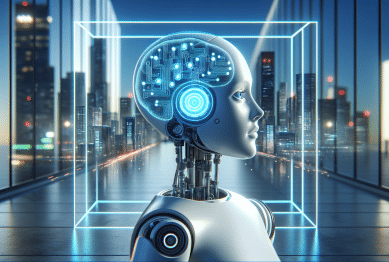Quantum computing is attracting global attention from scientists, tech leaders, and innovators. Explore why it matters, how it differs from conventional machines, and what to watch as this radical technology could influence fields from cybersecurity to medicine.
Unpacking Quantum Computing Basics
Quantum computing is more than just a buzzword. It refers to a new type of computation that leverages the quantum phenomena found at atomic and subatomic levels. Unlike traditional computers, which use bits that are either 0 or 1, quantum computers use qubits. Qubits can exist as a 0, a 1, or both at the same time, due to a property called superposition. This allows quantum computers to potentially process massive amounts of data significantly faster than classical computers can. For example, in theory, a sufficiently advanced quantum algorithm could solve problems in seconds that would take classical supercomputers ages. This tantalizing prospect draws strong interest from researchers, governments, and entrepreneurs (Source: https://www.ibm.com/quantum-computing/learn/what-is-quantum-computing/).
The power of quantum computing lies in its use of entanglement and coherence, phenomena that sound mysterious but are now proven in numerous experiments. Entanglement means qubits become connected so that the state of one instantly influences the other, regardless of distance. Quantum coherence allows these relationships to persist long enough to perform meaningful calculations. Mastering these concepts is tricky, requiring controlled lab conditions and advanced materials science. These factors explain why quantum computers are still found mostly in research labs and specialized tech companies rather than homes or offices. Yet, these machines’ unique capabilities continue to inspire hope and curiosity in those eager to break new computational ground (Source: https://www.nature.com/articles/d41586-019-02936-3).
Even though quantum computing is extremely complex, major companies like Google, IBM, and startups around the globe are vying to make it more accessible. Ongoing education efforts, such as open courses and online resources, are also helping more people learn about this powerful technology. Understanding quantum basics gives anyone interested in technology or science an edge, as the developments in this area happen rapidly. Everyday technology users may soon feel the influence of these advances in unexpected ways. The building blocks shaping tomorrow’s digital landscape are already here—in the world of quantum.
Quantum Versus Classical: What’s the Real Difference?
Most modern devices, from smartphones to cloud servers, run on classical computers. These machines process information by switching tiny electrical circuits on or off, corresponding to binary digits (bits). Quantum computers, by contrast, go beyond this digital “either/or” by handling data in a much more fluid way. Thanks to superposition, a quantum bit can run a multitude of calculations at once. This unique feature could make some computations exponentially faster. For instance, quantum algorithms may efficiently factor large numbers—a task notoriously difficult for classical machines, which is vital for current encryption methods.
The implications of this contrast ripple across industries. Quantum computers hold the potential to disrupt data encryption, optimize complex logistics, and even transform artificial intelligence. Consider how today’s classical computers struggle with simulating molecules for drug discovery. A quantum computer could, theoretically, process chemical interactions at a much deeper level, accelerating breakthroughs in medicine and materials science. Companies like D-Wave and academic consortia are already experimenting with simulations that go far beyond what was once possible with classical computing alone (Source: https://www.scientificamerican.com/article/how-close-are-we-really-to-building-a-quantum-computer/).
Although quantum computers are not universally faster for every task, they truly shine where classical computers hit hard limits. For example, searching vast, unstructured data sets or solving certain optimization problems can be handled with unprecedented speed. These strengths mean that businesses and governments keep a close watch on developments. It’s not just a matter of computing faster, but of unlocking whole new realms of possibility that were once beyond conception.
Reimagining Cybersecurity and Data Privacy
One of quantum computing’s most talked-about impacts is on cybersecurity. Present encryption methods, such as RSA and ECC, rely on mathematical problems that are hard to solve with classical computers. If quantum systems become powerful enough, they could rapidly break these codes. This prospect has sparked an urgent effort to develop quantum-resistant encryption, often called post-quantum cryptography. Research organizations and standards bodies are already preparing for a future where quantum hacking could become feasible (Source: https://www.nist.gov/news-events/news/2022/07/nist-announces-first-four-quantum-resistant-cryptographic-algorithms).
It isn’t just banks, governments, or tech giants that should watch this trend. Everyday users might begin to see shifts in how their online data is secured. Quantum-resistant security will likely roll out in new software updates, browsers, and devices over time. Companies are planning years ahead, so by the time quantum computers are strong enough to threaten encryption, improved defenses will hopefully be widespread. Staying informed about these changes adds a layer of protection in our increasingly digital lives.
In fact, quantum computing could also introduce new ways to make data more secure. Quantum key distribution (QKD), for example, uses quantum mechanics principles to ensure communications are nearly unbreakable. If a third party tries to eavesdrop, the very act of measurement disturbs the system, alerting users. This futuristic approach is already being tested in pilot projects and could be a feature in tomorrow’s internet infrastructure.
Quantum Computing’s Promise in Scientific Discovery
Scientific research is often limited by the speed and accuracy of classical computation. Modeling molecules, simulating physics systems, or searching for patterns in huge data sets can be time-consuming and costly. Quantum computers promise to deliver a leap forward. Because of their unique properties, these machines can model interactions at the atomic level, opening potential advances in drug development, materials engineering, and energy solutions (Source: https://www.nature.com/articles/d41586-019-02936-3).
One practical example comes from chemistry. Drug discovery, which depends on understanding how molecules interact, could become far more efficient with quantum-powered simulations. Faster calculations may lead to new medicines or more sustainable chemical processes. This advantage extends to physics, where quantum computers could model complex systems, from weather patterns to black holes, with far greater realism. The opportunities here are open-ended and draw excitement from academics and commercial R&D teams alike.
Beyond pure science, quantum computing could influence public health, climate modeling, and agriculture. Imagine forecasting climate shifts more accurately, or simulating virus mutations faster than ever before. These breakthroughs could directly benefit society, aiding decision-makers in crafting smarter policies and business strategies. Such applications are already in advanced trial phases at multiple research centers and promise to move from theory to application as technology matures.
The Roadblocks: Scaling and Reliability Challenges
Quantum computers are powerful, but building reliable hardware remains a monumental challenge. Qubits are sensitive to environmental disturbances—like temperature changes, vibrations, or even stray magnetic fields—which can easily disrupt calculations. Engineers refer to this fragility as ‘decoherence,’ and it remains a leading obstacle. As such, scaling quantum systems beyond a few dozen or hundred qubits requires breakthroughs in materials science, manufacturing, and error correction (Source: https://www.nationaldefensemagazine.org/articles/2022/6/29/the-promise-and-peril-of-quantum-computers).
Scientists and engineers are collaborating globally to find ways to stabilize and isolate quantum systems. Some approaches use supercooled circuits, others work with trapped ions or photons. Each method has strengths and trade-offs, and competition is fierce. While commercial “quantum advantage” has not yet been reached for most practical tasks, each year brings steady improvements. More robust hardware, better error correction, and hybrid classical-quantum systems are all being explored to make quantum computers more practical for real-world use.
Governments, universities, and private industry are pouring resources into solving these engineering puzzles. International collaboration is common, as the benefits of quantum computing are so wide-reaching. Even enthusiasts or general consumers following industry news can see the incremental advances as research organizations announce progress. While the road to widespread, reliable quantum systems is long, the pace of innovation keeps everyone watching closely.
What’s Next? Quantum’s Path from Research to Everyday Life
Though quantum computers are not yet in the average household, they’re steadily moving out of labs and specialized centers. Some tech giants now offer cloud-based access to quantum processors, letting programmers and students experiment with writing quantum code. These platforms foster new talent and encourage problem-solving in ways not possible with conventional machines. As skills grow, so too will the number of useful applications (Source: https://quantum-computing.ibm.com/).
Major governments and enterprises are training teams to anticipate the quantum era’s arrival. Schools and universities include quantum basics in curriculum, preparing for tomorrow’s workforce. Meanwhile, startups and established firms are filing patents, strategizing how to use quantum’s unique strengths for competitive advantage. These dynamics make quantum computing a frontier that’s both unpredictable and rich with promise. Even industries not traditionally linked with tech—like logistics or environmental science—are investing in quantum pilot projects.
For regular technology users, the transition may begin subtly. Applications powered by quantum backends—smarter AI, faster search, improved security—could roll out in the coming years under the hood. Users may not interact with quantum processors directly, but the changes could be profound. Watching for partnerships, services, and updates referencing quantum is a simple way to stay in the loop. The coming decade is set to be an era where quantum ideas ripple far and wide across everyday digital experiences.
References
1. IBM. (n.d.). What is quantum computing? Retrieved from https://www.ibm.com/quantum-computing/learn/what-is-quantum-computing/
2. Castelvecchi, D. (2019). Quantum computers ready to leap out of the lab in 2019. Nature. Retrieved from https://www.nature.com/articles/d41586-019-02936-3
3. National Institute of Standards and Technology. (2022). NIST announces first four quantum-resistant cryptographic algorithms. Retrieved from https://www.nist.gov/news-events/news/2022/07/nist-announces-first-four-quantum-resistant-cryptographic-algorithms
4. Scientific American. (n.d.). How close are we really to building a quantum computer? Retrieved from https://www.scientificamerican.com/article/how-close-are-we-really-to-building-a-quantum-computer/
5. National Defense Magazine. (2022). The promise and peril of quantum computers. Retrieved from https://www.nationaldefensemagazine.org/articles/2022/6/29/the-promise-and-peril-of-quantum-computers
6. IBM Quantum. (n.d.). IBM Quantum Experience. Retrieved from https://quantum-computing.ibm.com/









